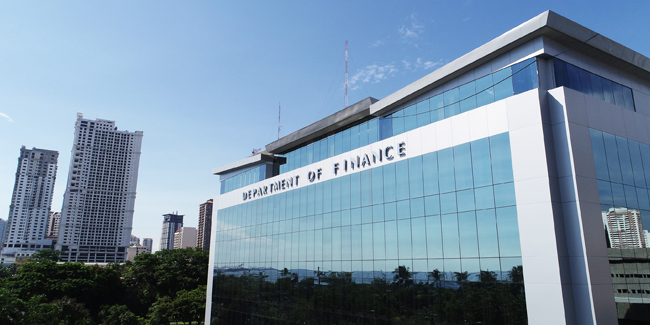The DOF wanted fintech companies to be “properly” taxed and regulated.
DOF — The Department of Finance wanted fintech companies in the Philippines to be properly taxed and regulated while urging the sector’s growth and continued innovation.

On Tuesday, DOF Secretary Carlos G. Dominguez III said in a statement that he has tasked the Bureau of Internal Revenue (BIR) and the Securities and Exchange Commission (SEC) to work together in order to ensure financial technology companies’ compliance with government rules.
According to Dominguez, the BIR and SEC should closely monitor financial technology companies and find out what new digital business models they have been adopting in order to determine how they should be taxed and regulated.
Dominguez ordered the SEC in order to strengthen its PhilFintech Innovation Office, which served as the first point of contact for financial technology companies applying for registration, or for existing ones that have been operating or were introducing new fintech products.
READ ALSO: DOF Says BIR To Strengthen Tax Regulations As Fintech Usage Grows
Dominguez said that the Securities and Exchange Commission should anticipate a surge in financial technology activities and the many variations of its business models by, among others, staffing its PhilFintech office with young, digitally skilled employees and providing an additional budget for its fintech-related programs.
He added that the BIR should fill its positions with more young people adept in digital technology in order to more efficiently monitor Fintech-related businesses and to enable the bureau to further expand its tax base.
“Operating in the digital space is just a platform. The type of activity doesn’t matter,” Dominguez said during a recent meeting with BIR and SEC officials. “It’s still taxable by the BIR and subject to the appropriate regulations of the SEC.”
According to BIR Deputy Commissioner Marissa Cabreros, the list of Fintech-related businesses provided by the Bangko Sentral ng Pilipinas (BSP) and the SEC has helped identify those companies that haven’t yet registered with the bureau for taxation purposes.
Cabreros also said that the tax bureau was validating the registration profile of existing financial technology companies based on the list provided by the BSP and the SEC, and will guide and urge those which weren’t yet registered and compliant with their tax obligations.
“We will continue to impose current Tax Code rules on compliance and taxation based on actual activities of financial technology companies which are akin to or similar to activities of ordinary corporations or financial institutions,” Cabreros said.
Dominguez ordered Finance Undersecretary Antonette Tionko to be on top of the BIR-SEC initiative in order to broaden the tax base of Fintech-related enterprises by ensuring that those two agencies have “enough regulatory and collection muscle for these digital technology companies”.
According to Antonette Tionko, the SEC and the tax bureau should coordinate with the DTI (Department of Trade and Industry), which “has done a lot of groundwork on Fintech” and had a list of Philippine companies engaged in the said activity.
For more news and updates, you may feel free to visit this site more often. You may also visit Newspapers.ph via our official Facebook page and YouTube channel.
